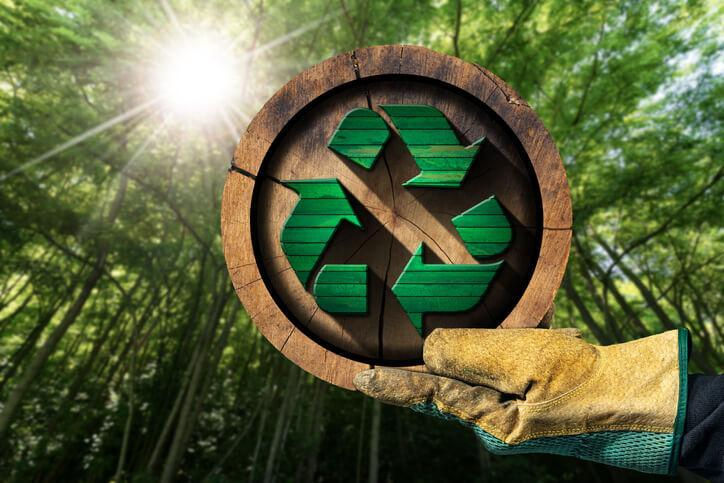From Waste to Worth: How Maine’s New Law and Plastech’s Mission Are Reshaping Our Food Future
- PlasTechFree, Inc.

- Jun 27, 2025
- 4 min read

Welcome back to One Less Bag, where this week we discuss a powerful new law out of Maine aimed at tackling food waste, the hidden danger of microplastics in our food system, and how Plastech’s zero-plastic compost solutions offer a cleaner path forward. From legislative wins to everyday action, we’re diving into how composting—done right—can help heal our planet from the inside out.
In a bold and inspiring move, the state of Maine has passed a groundbreaking new law to tackle one of the most overlooked contributors to climate change: food waste. LD 1065, signed into law this June, requires large food institutions—like grocery stores, schools, and manufacturers—to donate edible food and compost the rest instead of sending it to landfills or incinerators. It’s a smart, necessary pivot that not only redirects surplus food to hungry mouths but also drastically reduces methane emissions from rotting waste.
The law rolls out in phases over the next few years, beginning in 2027 with larger generators and expanding by 2029. But make no mistake—this is more than a regulatory timeline. It signals a cultural shift in how we treat food, waste, and the health of our planet.
Maine is now standing shoulder to shoulder with states like Massachusetts and Vermont, proving that thoughtful legislation can simultaneously reduce greenhouse gases, combat hunger, and boost local economies. But as we cheer this progress, there’s another invisible threat hiding in plain sight—one that could quietly undermine even the greenest intentions.
The Plastic We Can't See (But Are Definitely Eating)
While we celebrate the push to compost food scraps and keep them out of landfills, there's a hidden danger silently creeping into our soils, our food, and ultimately, our bodies: microplastics. These tiny fragments—less than five millimeters in size—have infiltrated our food system in ways we’re only beginning to understand. They're found in fish, salt, fruits, vegetables, bottled water, and even the air we breathe.
And one of the most common culprits? Plastic packaging and bags—especially those used to line compost bins. What starts as a well-meaning act of separating food waste can end with microplastic residue contaminating compost and farmland if that liner isn’t truly compostable. Even some products labeled “compostable” or “biodegradable” contain plastic blends that break down into particles we can’t see, but absolutely ingest.
The irony is painful: we’re trying to heal the planet and nourish the soil, but we’re doing it with tools that leave behind synthetic scars.

Plastech: A Real Solution for a Zero-Plastic World
This is exactly where Plastech steps in. Our mission is crystal clear—eliminate plastic entirely from the equation, especially at critical points like food disposal and composting. We’re not here to offer band-aids or “almost compostable” solutions. We’re here to transform the system from the inside out, starting with everyday habits in homes, institutions, and businesses.
Our home compost bin bags are made from truly plastic-free, plant-based materials that break down completely—leaving no harmful trace behind. Whether you’re composting at home or managing large-scale food waste for a grocery chain or school district, Plastech offers a product you can trust to return to the earth safely and responsibly.
In fact, our zero-plastic compost bin bags are designed specifically with laws like Maine’s in mind. As the new mandates roll out and food service institutions across the state look for compliant, sustainable options, they won’t just need to compost—they’ll need to compost smart. That means no plastic contamination. No misleading blends. No greenwashing.
Food for Soil, Not for Pollution
The movement toward composting food waste is a powerful one. It reconnects us to nature’s cycle, where yesterday’s scraps become tomorrow’s nourishment. But to fully realize that potential, we must be vigilant about what we’re putting into the compost bin—because not all compostable products are created equal.
If we continue lining bins with plastic—or even semi-compostable alternatives—we risk turning nutrient-rich compost into a microplastic soup. And that means we’re not just polluting the planet. We’re feeding that pollution back to ourselves.
Maine’s law is a call to action, not just for legislators and businesses, but for all of us. It’s a reminder that every banana peel, every uneaten sandwich, and every “past its date” container of yogurt has value—if we handle it correctly. But it also reminds us that the tools we use to manage waste matter just as much as the waste itself.

A Cleaner Future Starts at the Bin
At Plastech, we believe that real sustainability comes from total transparency and zero compromise. That’s why our entire line of products is 100% home compostable, certified plastic-free, and designed to break down fully without contaminating the environment. We don’t just follow the rules—we help raise the bar.
Maine is leading the way. We’re proud to support that leadership with practical, planet-loving solutions that meet the moment—and prepare us for the future. Together, we can turn food waste into healthy soil instead of toxic fallout. We can stop plastic at the source instead of filtering it from our dinner plates. And we can build a world where waste becomes renewal, not regret.
Let’s take this opportunity to rethink what we throw away—and how we throw it away. Compost smarter. Live cleaner. Choose zero plastic.



Comments